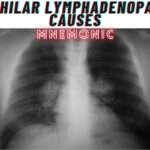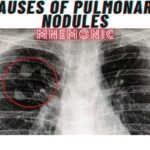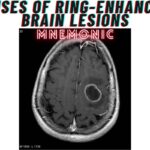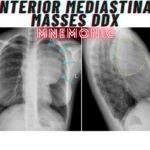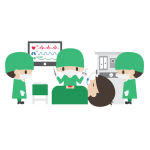In this article, we are sharing with our audience the genuine PDF download of Critical Care Nephrology 3rd Edition PDF using direct links which can be found at the end of this blog post. To ensure user-safety and faster downloads, we have uploaded this .pdf file to our online cloud repository so that you can enjoy a hassle-free downloading experience.
At Medicos Republic, we believe in quality and speed which are a part of our core philosophy and promise to our readers. We hope that you people benefit from our blog! 🙂
Now before that we share the free PDF download of Critical Care Nephrology 3rd Edition PDF with you, let’s take a look into few of the important details regarding this ebook.
Overview
Here’s the complete overview of Critical Care Nephrology 3rd Edition PDF:
Comprehensive and clinically relevant, the 3rd Edition of Critical Care Nephrology provides authoritative coverage of the latest advances in critical care procedures for patients with renal diseases or disorders. Using common guidelines and standardized approaches to critically ill patients, this multidisciplinary reference facilitates better communication among all physicians who care for critically ill patients suffering from kidney disease, electrolyte and metabolic imbalances, poisoning, severe sepsis, major organ dysfunction, and other pathological events.
Features of Critical Care Nephrology 3rd Edition PDF
Here’s a quick overview of the important features of this book:
- Offers detailed discussions of different forms of organ support, artificial organs, infections, acute illness occurring in chronic hemodialysis patients, and much more.
- Places a special emphasis on therapeutic interventions and treatment procedures for a hands on clinical reference tool
- Presents information clearly, in a format designed for easy reference – from basic sciences to clinical syndromes to diagnostic tools.
- Covers special populations such as children, diabetic patients, and the elderly
- An exceptional resource for nephrologists, intensivists, surgeons, or critical care physicians – anyone who treats critically ill renal patients.
- Shares a combined commitment to excellence lead by Drs. Claudio Ronco, Rinaldo Bellomo, John Kellum, and Zaccaria Ricci – unparalleled leaders in this field.
- Addresses key topics with expanded coverage of acute kidney injury, stress biomarkers, and sepsis, including the latest developments on mechanisms and management.
- Provides up-to-date information on extracorporeal therapies from new editor Dr. Zaccaria Ricci.
- Expert Consult™ eBook version included with purchase. This enhanced eBook experience allows you to search all of the text, figures, and references from the book on a variety of devices.
Claudio Ronco MD (Author)
By Claudio Ronco, MD, Divisione di Nefrologia, Ospedale San Bortolo, Vicenza, Italy; Rinaldo Bellomo, MBBS(Hons), MD, FRACP, FCCP, Chairman, Australian and New Zealand Intensive Care Society Clinical Trials Group; Director of Intensive Care Research, Department of Intensive Care, Austin & Repatriation Medical Centre, Melbourne, Victoria, Australia; John A. Kellum, MD, UPMC Presbyterian, Pittsburgh, PA and Zaccaria Ricci, Pediatric Cardiac Intensive Care Unit, Bambino Gesù Children’s Hospital, Rome, Italy
Table of Contents
Below is the complete table of contents offered inside this book:
Section 1: Principles of Critical Care
1. The Critically ill patient
2. The Pathophysiological Foundations of critical care
3. Pulmonary support in the critically ill
4. Hemodynamic support in the critically ill patient
5. Monitoring of organ function in critical care
6. Kidney-Specific Severity Scores
Section 2: Principles of Renal Physiology
7. Practical Considerations of Renal Biopsies in Critical Care Patients
8. Tubular physiology
9. Glomerular Filtration Rate, Renal Functional Reserve and Kidney Stress Testing
10. Renal energy consumption and metabolism
Section 3: Epidemiology of AKI in critical care
11. Acute Kidney Injury: from clinical to molecular diagnosis
12. Community and hospital acquired Acute Kidney Injury
13. Epidemiology of Acute Kidney Injury in critically ill patients
14. AKI in patients with CKD
Section 4: Exposures and patient susceptibility
15. Genetic predisposition to AKI
16. Risks Factors and Risk Assessment in Acute Kidney Injury
17. Experimental Models of Acute Kidney Injury
Section 5: Humoral and cellular mechanisms of kidney damage
18. Renal blood flow and perfusion pressure
19. Humoral mediators in sepsis
20. Cell Death Pathways: Apoptosis and Regulated Necrosis
21. Pathogen Associated Molecular Patterns (PAMPs), Damage Associated Molecular Patterns (DAMPs), and their receptors in Acute Kidney Injury
Section 6: Clinical course of AKI and Biomarkers
22. AKI continuum: the conceptual model of AKD
23. Acute Kidney Disease, Renal Recovery and Post AKI Care
24. The role of biomarkers in AKI diagnosis and management
25. Functional biomarkers
26. Damage biomarkers
27. Stress biomarkers
Section 7: Mechanisms of repair or progression
28. The process of repair after AKI
29. Maladaptive repair and progression to CKD
30. Biomarkers of recovery and/or repair following Acute Kidney Injury
Section 8: SECTION 8: Renal Histopathology in AKI
31. Renal Biopsy in AKI
32. Localization of injury and repair pathways
Section 9: Imaging techniques in Critical Care Nephrology
33. Ultrasonography and Doppler techniques
34. Contrast enhanced renal ultrasound
35. TRADITIONAL RADIOLOGY, COMPUTED TOMOGRAPHY AND MAGNETIC RESONANCE IMAGING IN CRITICAL CARE NEPHROLOGY
36. Radionuclide diagnostic techniques
Section 10: Clinical Syndromes and AKI
37. Multiple organ dysfunction syndrome
38. AKI in Burns and Trauma
39. Drug-Induced Acute Kidney Injury
40. Acute Kidney Injury in PregnancyAcute
41. AKI in oncology and tumour lysis syndrome
42. AKI in cardiac surgery
43. AKI in major surgery
44. Acute Kidney Injury in Heart Failure
45. Aki in CIRRHOSIS
46. AKI in kidney transplantation
47. Acute glomerulonephritis
48. Contrast-induced Acute Kidney Injury
49. Abnominal compartment syndrome
50. HEMOLYTIC UREMIC SYNDROME
Section 11:Prevention and Treatment: General Treatment Concepts
51. Non-pharmacological prevention of AKI
52. Novel Drugs for AKI
53. Remote Ischemic Preconditioning
Section 12: Fluid and Electrolytes
54. Blood Biochemistry: Measuring Major Plasma Electrolytes
55. Assessment of Urine biochemistry
56. Disorders of Sodium and Water Balance
57. Disorders of Potassium and Magnesium
58. Calcium and Phosphate Physiology
59. Principles of Fluid Therapy
60. Blood and Blood Products
61. Loop and thiazide Diuretics
62. Vaptans and the treatment of hyponatremia
63. Aldosterone antagonists and other potassium sparing diuretics
Section 13: Acid-Base
64. Laboratory tests: blood gases, anion gap, stron ion gap
65. Acid Base physiology and diagnosis of disorders
66. Metabolic Acidosis
67. Hyperlactatemia and lactic acidosis
68. Renal Tubular Acidosis(RTA)
69. Metabolic alkalosis
70. Respiratory acid-base disorders
71. Iatrogenic and poison-derived acid base disorders
Section 14:Metabolism and nutrition in critical illness and AKI
72. Energy requirement and consumption in the Critically Ill Patient
73. Metabolic aspects of RRT
74. Aminoacid turnover, Protein metabolism and Nitrogen balance in Acute Kidney Injury
75. Carbohydrates and Lipids
76. Endocrinology of stress response to critical illness
77. Anemia of critical illness
78. Management of Nutrition in AKI and RRT
79. Blood Glucose Control in Critical Care
80. Enteral Nutrition
Section 15: Infectious diseases and Sepsis
81. Microbiological Considerations in the Intensive Care Patient
82. Innate Immunity and the Kidney
83. Adaptive immunity and Critical Illness
84. Spontaneous Bacterial Peritonitis and Hepatorenal Syndrome
85. Tropical Infections Causing Acute Kidney Injury
86. The Sepsis Syndrome and septic shock
87. Complement and its Consequences in Sepsis
88. Coagulation abnormalities in sepsis
89. Endothelial dysfunction in sepsis
90. The kidney in sepsis and Mechanisms of AKI
91. Recommendation for sepsis management
92. Antibiotic Prescription in ICU and AKI
93. Renal Replacement Therapy in Septic AKI
94. Blood purification therapies for sepsis
95. Management of infection in patients with kidney transplant
96. Viral infections in the ICU
97. Management of antibiotic-resistant infections
Section 16: Acute Intoxication and Poisoning
98. Characteristics, Pathophysiology, and Effects of Common Toxic Substances
99. Drugs and Antidotes in Acute Intoxication and Laboratory Testing in Toxicology
100. Extracorporeal therapies in Acute Intoxication and Poisoning
101. Plasmapheresis in Acute Intoxication and Poisoning
102. Poisoning: Kinetics to Therapeutics
Section 17:AKI and Organ crosstalk
103. Bleeding and hemostasis in AKI
104. Gastrointestinal Complications of Acute Kidney Injury
105. Cardiovascular problems in AKI
106. Water and electrolyte disorders in AKI
107. Neurological problems in AKI
108. Immunological and infectious complications of AKI
109. Cellular response to AKI
Section 18:The heart and the kidney
110. Heart kidney crosstalk
111. Cardiorenal Syndrome Classification
112. Cardiorenal Syndrome type 1
113. Cardiorenal Syndrome type 2
114. Cardiorenal Syndrome type 3
115. Cardiorenal Syndrome type 4
116. Renal Function during Cardiac Mechanical Support and the Artificial Heart
117. The kidney in diastolic dysfunction
118. Principles of Volume Management in Congestive Hear Failure and Cardiorenal Syndrome
119. Management of overhydration in heart failure patients
120. Recent advances for stroke prevention in patients with atrial fibrillation and advanced kidney disease
Section 19: The lung and the kidney
121. Lung-kidney crosstalk
122. The Kidney during Mechanical Ventilation
123. ECMO and renal function
124. Extracorporeal CO2 removal
125. ECMO and CRRT in adult and children
126. Pulmonary Renal Syndromes
Section 20:The Liver and the Kidney
127. Liver-Kidney Interaction
128. Pathophysiology & management of the Hepatorenal Syndrome
129. Kidney Dysfunction after Liver Transplantation
130. Extracorporeal Liver Support and the Kidney
Section 21: The Brain and the Kidney
131. Treatment of Combined AKI and Cerebral Edema
132. Renal Protection in the Organ Donor
133. Effect of Extracorporeal Therapies on the Brain
Section 22: Fluid balance and its management in the critically ill
134. Components of fluid balance and monitoring
135. Methods of estimation of fluid status
136. The five B approach to fluid management
137. Mechanical fluid removal
Section 23: General principles of Acute renal replacement therapy
138. Indications for Renal Replacement Therapy in the Critically Ill
139. Principles of Extracorporeal Circulation and mass separation
140. Membranes and Filters for Use in Acute Renal Failure
141. Evolution of Machines for Acute Renal Replacement Therapy
142. Principles of Anticoagulation in Extracorporeal Circuits
143. Dialysis solutions and replacement fluids
144. Starting and Stopping Renal Replacement Therapy in the Critically Ill
145. The Concept of Renal Replacement Therapy Dose and Efficiency
146. Quantification of Acute Renal Replacement Therapy
147. Principles of Pharmacodynamics and Pharmacokinetics of Drugs Used in Extracorporeal Therapies
148. Ethical Considerations in Acute Renal Replacement Therapy
Section 24: Intermittent renal replacement therapies (IRRT)
149. Intermittent Techniques for Acute Dialysis
150. Solute and water transport in hemodialyzers, flow distribution and crossfiltration
151. Biocompatibility of the Dialysis System
152. Composition of Hemodialysis Fluids
153. Indications for and Contraindications to Intermittent Hemodialysis in Critically Ill Patients
154. Technical and Clinical Complications of Intermittent Hemodialysis in the Intensive Care Unit
155. Correction of Water, Electrolyte, and Acid-Base Derangements by Hemodialysis and Derived Techniques
156. Urea Kinetics, Efficiency, and Adequacy of Hemodialysis and Other Intermittent Treatments
157. Assessment of Fluid Status and Body Composition and Control of Fluid Balance with Intermittent Hemodialysis in the Critically Ill Patient
158. Outcome of Intermittent Dialysis in Critically Ill Patients with Acute Renal Failure
159. Hybrid Dialysis Techniques in the Intensive Care Unit
160. Plasma exchange in acute illness
161. Cascade filtration for ABO incompatible transplant
162. Nursing Issues and Procedures in acute dialysis
Section 25: Continuous Renal replacement therapies (CRRT)
163. Indications for CRRT: renal replacement versus renal support
164. Beginning and Ending CRRT in the Intensive Care Unit
165. Solute and Water Kinetics in Continuous Therapies
166. CRRT: modalities and their selection
167. Vascular access for renal replacement therapy in AKI patients
168. Anticoagulation Strategies for CRRT and citrate
169. Nursing Strategies to Prevent Coagulation in CRRT
170. Adequacy of CRRT: Precription and delivery
171. High-Volume Hemofiltration in the Intensive Care Unit
172. Pulse High-Volume Hemofiltration in Management of Critically Ill Patients with Sepsis or Septic Shock
173. High cut off membranes for mediators removal
174. Clinical Effects of Continuous Renal Replacement Therapies
175. Antibiotic adjustment in CRRT
176. Nomenclature: Basic principles
177. Nomenclature: Techniques
Section 26: Peritoneal Dialysis in critical illness
178. Peritoneal Dialysis in the Intensive Care Unit
179. Indications, Contraindications, and Complications of Peritoneal Dialysis in Acute Renal Failure
180. Solute and Water Transport across the Peritoneal Membrane
181. Choice of Peritoneal Dialysis Technique: Intermittent or Continuous
182. Correction of Fluid, Electrolyte, and Acid-Base Derangements by Peritoneal Dialysis in Acute Kidney Injury
183. Efficiency and Adequacy of Peritoneal Dialysis in Acute Renal Failure
184. Clinical Results and Complications of Peritoneal Dialysis in Acute Renal Failure
185. Treatment of Peritonitis and Other Clinical Complications of Peritoneal Dialysis in the Critically Ill Patient
186. Comparison of Peritoneal Dialysis with Other Treatments for Acute Renal Failure
187. Techniques and technology of Continuous-Flow Peritoneal Dialysis as Acute Therapy
188. Nursing Issues and Procedures in Acute Peritoneal Dialysis
Section 27: Extracorporeal Blood Purification Techniques beyond Dialysis
189. Plasmapheresis
190. Sorbents and Hemoperfusion techniques
191. Therapeutic apheresis in critically ill patients: indicatins, modalities and techniques, clinical results.
192. MARS and extracorporeal liver support
193. Coupled Plasmafiltration-Adsorption
194. The Prometheus System
195. Toraymyxin and Other Endotoxin Adsorption Systems
196. The Plasmafiltration-Adsorption-Dialysis System
197. Extracorporeal membrane oxigenation for cardiac support
198. Extracorporeal membrane oxygenation for pulmonary support
199. Cell Based Therapies
Section 28: Critical Care Nephrology in Pediatrics
200. Pathophysiology of Pediatric Acute Kidney Injury
201. Epidemiology of Pediatric Acute Kidney Injury
202. Treatment of Acute Kidney Injury in Children: Conservative Management to Renal Replacement Therapy
203. Technical Aspects of Pediatric Continuous Renal Replacement Therapy
204. Multiple Organ Dysfunction in the Pediatric Intensive Care Unit
205. Drug Dosing in Pediatric Acute Kidney Insufficiency and Renal Replacement Therapy
206. Nutrition of Critically Ill Children with Acute Renal Failure
207. Continuous Renal Replacement Therapies in Combination with Other Extracorporeal Therapies
208. Outcome of Pediatric Acute Kidney Injury
209. Renal Replacement Therapy for the Critically Ill Infant
210. Inborn Errors of Metabolism and Continuous Renal Replacement Therapy
211. Modified Ultrafiltration in Pediatric Heart Surgery
212. Techniques and machines for Pediatric RRT
213. Antibiotics in critically ill newborns and children: nephrotoxicity and management during RRT
Section 29: Kidney Transplantation
214. Patient Selection and Pretransplantation Care for Kidney Transplant Recipients
215. Kidney Support and Perioperative Care in Kidney Transplantation
216. AKI in Kidney Transplant Recipients
Section 30: Special Kidney Problems in the Intensive Care Unit
217. Management of CKD and ESKD patients in the ICU
218. Management of AKI in Patients with Diabetes in the Intensive Care Unit
219. Diagnosis and Management of AKI in the Emergency Room
220. Anticancer Drugs and the Kidney
221. Anti-inflammatory Drugs and the Kidney
222. Calcineurin Inhibitors and Other Immunosuppressive Drugs and the Kidney
223. Alternative Medicine and Chinese Herbs and the Kidney
224. Environment, Smoking, Obesity, and the Kidney
225. Lead and Heavy Metals and the Kidney
226. Statins and the Kidney
227. Erythropoietin Therapy in Critically Ill Patients and AKI
228. Vasoactive Drugs and Renal Function
229. End points for clinical trials in AKI
230. Hypothermia and the kidney
231. ACEI and AKI
You might also be interested in: 🙂
Oxford Handbook of Nephrology and Hypertension 2nd Edition PDF Free Download
Product Details
Below are the technical specifications of Critical Care Nephrology 3rd Edition PDF:
- Hardcover: 1456 pages
- Publisher: Elsevier; 3 edition (December 20, 2017)
- Language: English
- ISBN-10: 9780323449427
- ISBN-13: 978-0323449427
- ASIN: 0323449425
- Product Dimensions: 8.9 x 1.7 x 11.1 inches
- Shipping Weight: 6.3 pounds
Critical Care Nephrology 3rd Edition PDF Free Download
Alright, now in this part of the article, you will be able to access the free PDF download of Critical Care Nephrology 3rd Edition PDF using our direct links mentioned at the end of this article. We have uploaded a genuine PDF ebook copy of this book to our online file repository so that you can enjoy a blazing-fast and safe downloading experience.
Here’s the cover image preview of Critical Care Nephrology 3rd Edition PDF:
FILE SIZE: 64 MB
Please use the direct link mentioned below to download Critical Care Nephrology 3rd Edition PDF for free now:
Download Link
Happy learning, people!
DMCA Disclaimer: This site complies with DMCA Digital Copyright Laws. Please bear in mind that we do not own copyrights to these books. We’re sharing this material with our audience ONLY for educational purpose. We highly encourage our visitors to purchase original books from the respected publishers. If someone with copyrights wants us to remove this content, please contact us immediately.
All books/videos on the Medicos Republic are free and NOT HOSTED ON OUR WEBSITE. If you feel that we have violated your copyrights, then please contact us immediately (click here).
Check out our DMCA Policy.
You may send an email to madxperts [at] gmail.com for all DMCA / Removal Requests.

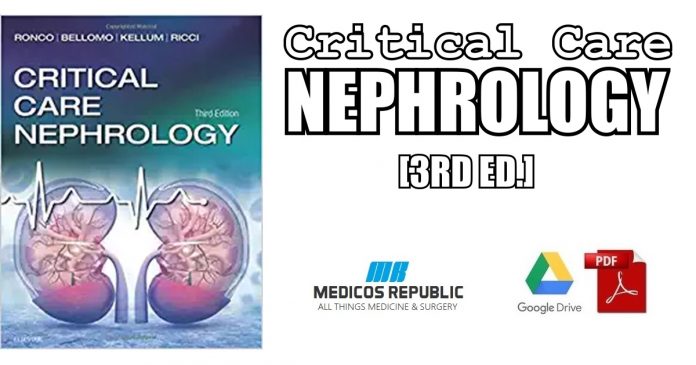
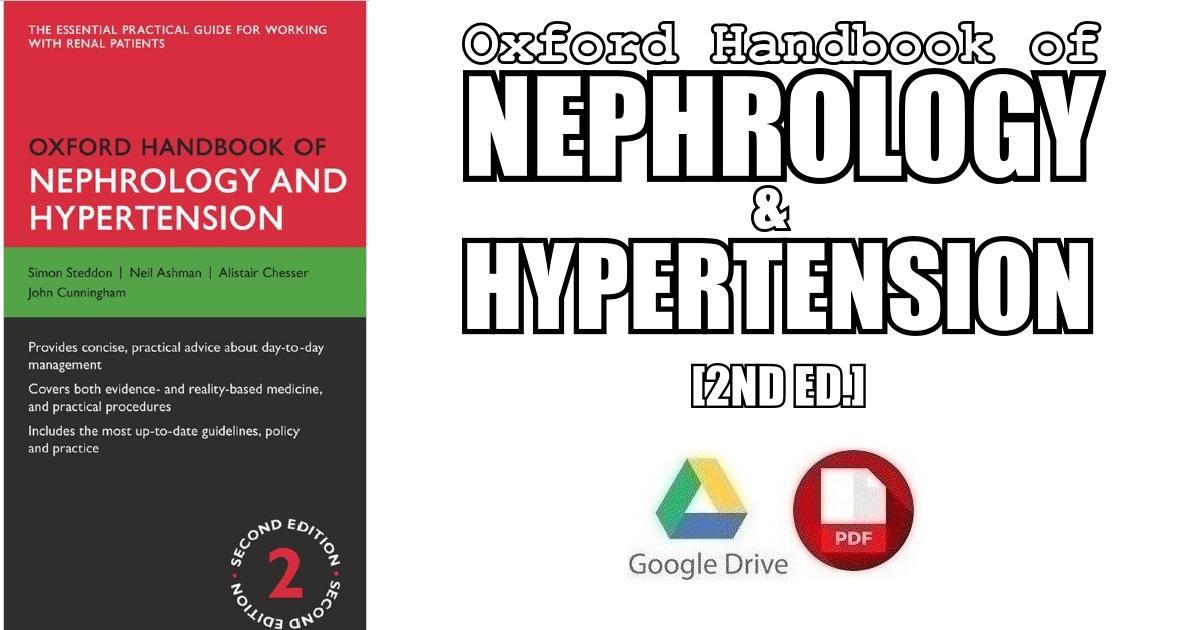
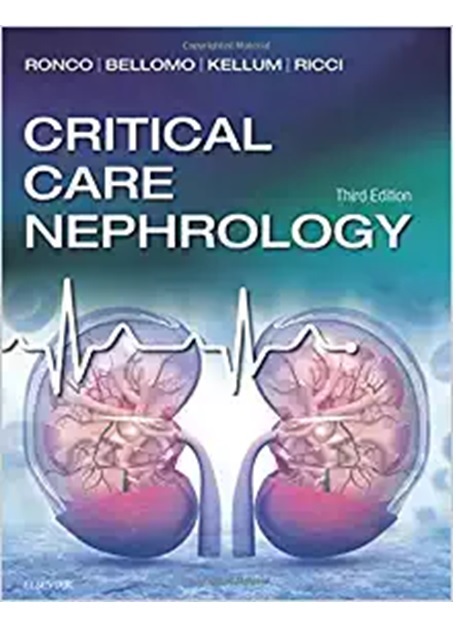

![Occupational Therapy in Psychiatry and Mental Health 5th Edition PDF Free Download [Direct Link] Occupational Therapy in Psychiatry and Mental Health 5th Edition PDF](https://www.medicosrepublic.com/wp-content/uploads/2023/07/Occupational-Therapy-in-Psychiatry-and-Mental-Health-5th-Edition-PDF-218x150.jpg)
![Noyes’ Knee Disorders 2nd Edition PDF Free Download [Direct Link] Noyes' Knee Disorders 2nd Edition PDF](https://www.medicosrepublic.com/wp-content/uploads/2023/07/Noyes-Knee-Disorders-2nd-Edition-PDF-Free-Download-1-218x150.jpg)
![Thyroid and Parathyroid Diseases: Medical and Surgical Management 2nd Edition PDF Free Download [Direct Link] Thyroid and Parathyroid Diseases Medical and Surgical Management 2nd Edition PDF](https://www.medicosrepublic.com/wp-content/uploads/2023/07/Thyroid-and-Parathyroid-Diseases-Medical-and-Surgical-Management-2nd-Edition-PDF-Free-Download-1-218x150.jpg)
![Head, Neck, and Orofacial Infections: An Interdisciplinary Approach 1st Edition PDF Free Download [Direct Link] Head, Neck, and Orofacial Infections An Interdisciplinary Approach 1st Edition PDF](https://www.medicosrepublic.com/wp-content/uploads/2023/07/Head-Neck-and-Orofacial-Infections-An-Interdisciplinary-Approach-1st-Edition-PDF-Free-Download-1-218x150.jpg)
![Manual of Clinical Paramedic Procedures 1st Edition PDF Free Download [Direct Link] Manual of Clinical Paramedic Procedures 1st Edition PDF](https://www.medicosrepublic.com/wp-content/uploads/2023/07/Manual-of-Clinical-Paramedic-Procedures-1st-Edition-PDF-218x150.jpg)
![The Respiratory System at a Glance 3rd Edition PDF Free Download [Direct Link] The Respiratory System at a Glance 3rd Edition PDF](https://www.medicosrepublic.com/wp-content/uploads/2023/07/The-Respiratory-System-at-a-Glance-3rd-Edition-PDF-218x150.jpg)

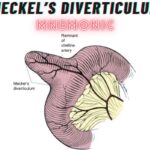
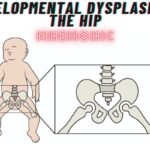
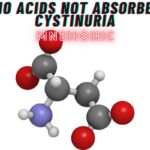
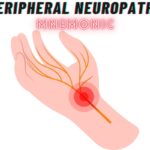
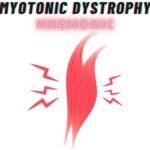
![Gerstmann Syndrome Features Mnemonic [Easy-to-remember] Gerstmann Syndrome Features Mnemonic](https://www.medicosrepublic.com/wp-content/uploads/2025/06/Gerstmann-Syndrome-Features-Mnemonic-150x150.jpg)
![Cerebellar Signs Mnemonic [Easy to remember] Cerebellar Signs Mnemonic](https://www.medicosrepublic.com/wp-content/uploads/2025/06/Cerebellar-Signs-Mnemonic-150x150.jpg)
![Seizure Features Mnemonic [Easy-to-remember] Seizure Features Mnemonic](https://www.medicosrepublic.com/wp-content/uploads/2025/06/Seizure-Features-Mnemonic-1-150x150.jpg)

![Recognizing end-of-life Mnemonic [Easy to remember]](https://www.medicosrepublic.com/wp-content/uploads/2025/06/Recognizing-end-of-life-Mnemonic-150x150.jpg)

![Multi-System Atrophy Mnemonic [Easy-to-remember] Multi-System Atrophy Mnemonic](https://www.medicosrepublic.com/wp-content/uploads/2025/06/Multi-System-Atrophy-Mnemonic-150x150.jpg)
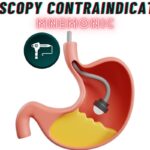
![How to Remember Southern, Northern, and Western Blot Tests [Mnemonic] How to Remember Southern, Northern, and Western Blot Tests](https://www.medicosrepublic.com/wp-content/uploads/2025/06/How-to-Remember-Southern-Northern-and-Western-Blot-Tests-150x150.jpg)

